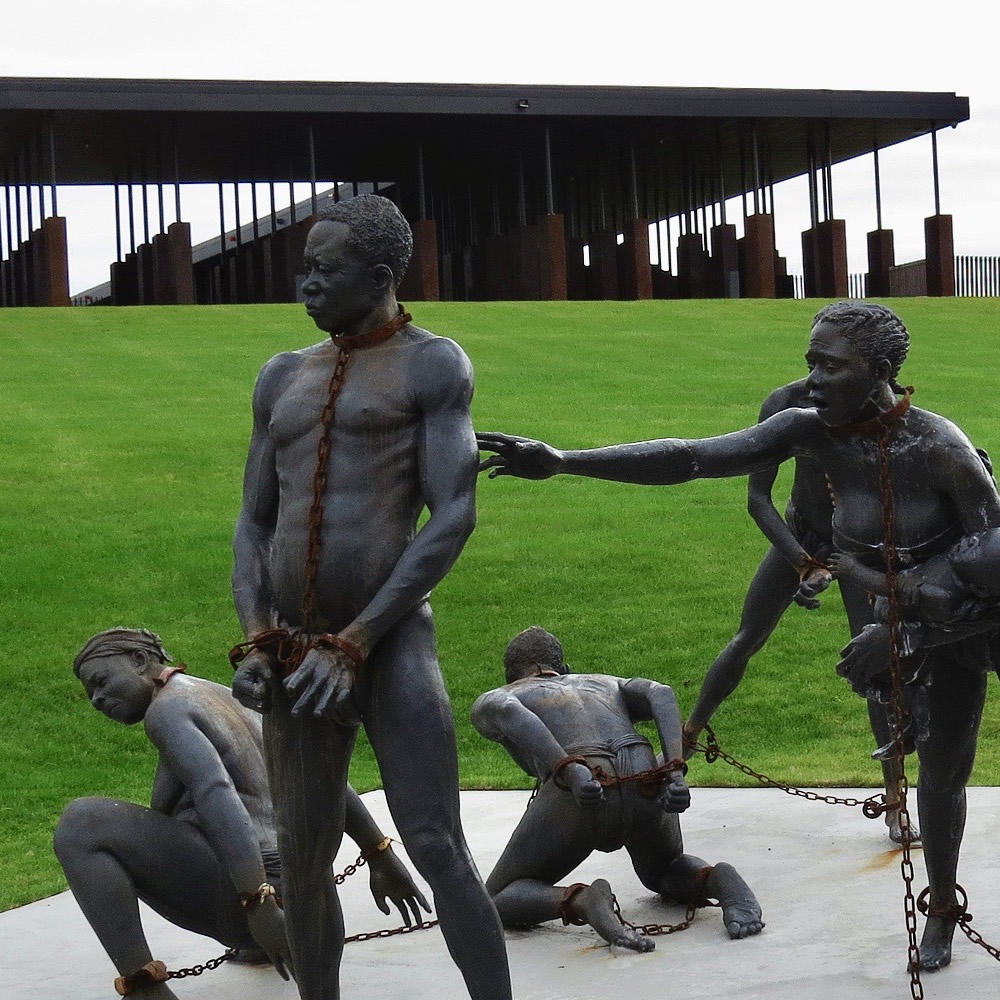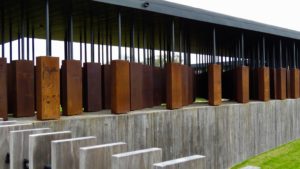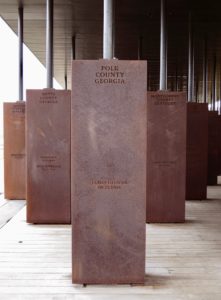
Commission Established to Honor 19th-Century Lynching Victims
Almost 140 years after at least three black men were lynched in Montgomery County, the county council has called for a commission to memorialize the victims and promote a better understanding of the community’s racial history.
Councilmembers Will Jawando, Craig Rice and Hans Riemer introduced a resolution on Jan. 22 to form the Remembrance and Reconciliation Commission. This committee will install the county’s monument at a national lynching memorial and design programs to foster discussions about intolerance.
The National Memorial for Peace and Justice — opened in April 2018 in Montgomery, Alabama — is run by the Equal Justice Initiative (EJI), a nonprofit that aims to challenge inequality and protect human rights. The memorial is the first of its kind. It spawns from an EJI investigation into lynchings within communities nationwide. More than 4,000 cases were documented from over 800 counties, mostly between 1880 and 1940. Many of these cases were recorded for the first time during this project.
The memorial square houses 800, six-foot monuments in the form of steel columns. Each one represents a county where lynchings occurred, and the victims’ names are engraved on the sides. The six-acre park surrounding the memorial also hosts a field of identical, blank monuments that are waiting to be claimed by the counties they represent. The Remembrance and Reconciliation Commission will work to add Montgomery County’s column.
“We cannot mask our history if we are to ever end systemic racism, social injustice and domestic terrorism delivered upon young black men in America, even today,” Councilmember Jawando said while presenting the resolution. “Let’s forever remember the names of George Peck, John Diggs and Sidney Randolph.”
The Montgomery County Office of Human Rights will oversee the commission’s efforts. During his remarks at the Jan. 22 meeting, the office’s director James Stowe said the resolution will “enable us to put together a team not only to tell the story of these lynchings, but also to facilitate a broader knowledge of the lessons of our history and bring about reconciliation.”
The commission will include at least 10 public members who are nominated by the county executive and confirmed by the council. Community organizations, including the Montgomery County Human Rights Commission, Arts & Humanities Commission of Montgomery County and Montgomery County Public Schools, will have ex-officio representation.
Along with claiming the county’s monument at the Alabama museum, the committee will install historical markers at the lynching sites and collect soil from the locations to be displayed at The Legacy Museum. Located a block away from the memorial, the museum walks visitors through the history of slavery and racism in America.
The Remembrance and Reconciliation Commission is also tasked with designing programs to advance the dialogue that the monument, historical markers and soil aims to foster.
“These victims were murdered and they were denied due process, and this affects our community as a whole,” Councilmember Rice said. “It’s important to spotlight the horrors of our past and to facilitate better racial dialogue in the future.”



Engage us on Facebook
Follow us on Twitter
Tweets by @mymcmedia